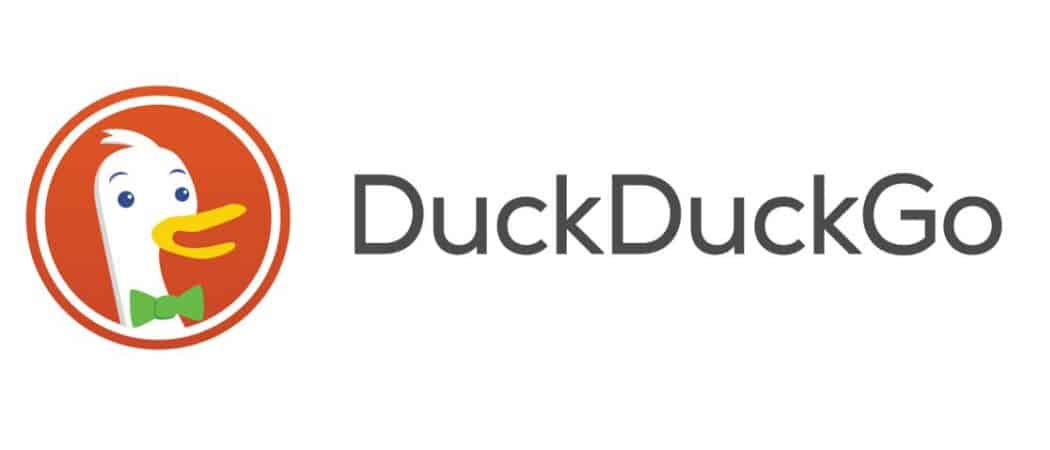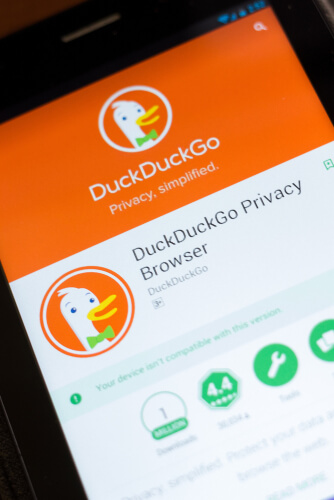

#Duckduckgo browser app code
“We wanted complete control over the code and the experience,” Burger-Lenehan says. Mozilla’s Firefox is one of the only other browsers that doesn’t use this Google-created setup.ĭuckDuckGo shunned Chromium and instead uses Apple’s WebKit rendering system, which converts code into the web pages you see. The vast majority of alternative web browsers-including Microsoft’s Edge, Brave, Vivaldi, and Opera-all use, to some extent, altered versions of Google’s browser code base, Chromium, and its underlying browser engine, Blink. What perhaps makes DuckDuckGo’s app stand out is how the browser is built.

(Although Tor is widely considered the most private browser.) Apple’s Safari, Firefox, Vivaldi, Opera, Brave, and DuckDuckGo’s mobile apps all block trackers to various degrees. In recent years, browsers have piled privacy features into their offerings-most prominently blocking trackers, browser fingerprinting, and ads that follow you around the internet-to differentiate themselves from Google’s browser.
#Duckduckgo browser app for mac
“This feature works on about 50 percent of cookie pop-ups that you might encounter,” Burger-Lenehan says, adding that the percentage should “significantly” increase when more people use the beta.ĭuckDuckGo for Mac joins a growing list of Chrome rivals. If you give it permission to do so, it will use javascript to automatically set the cookie preferences on each site you visit and pick the options to “maximize privacy.” What this means in practice is that you don’t see cookie pop-ups. The first time you use the app you’ll be asked if you want to let it manage the pop-ups that appear. While browser extensions can help you avoid cookie pop-ups, DuckDuckGo’s browser automates the process. In the new browser, this includes taking on one of the internet’s most annoying experiences: cookie consent pop-ups, which were provoked by the introduction of the GDPR, the EU’s landmark data-privacy law. “And just to default to the most private thing without trade-offs in that experience.” “Everything that we build, we want to make as frictionless and simple and easy to understand,” Burger-Lenehan says. It also includes a built-in option for saving passwords, and it incorporates the company’s recently launched email protection, which blocks hidden trackers in the emails you are sent. The browser uses DuckDuckGo’s private search engine as the default option, blocks ad trackers on each site you visit, and shows how many have been blocked. “We don't track our users-that is our privacy policy,” Burger-Lenehan says.

Since the launch of its anti-Google search engine back in 2008, DuckDuckGo’s web browser continues the company’s principle of not collecting your data, says Beah Burger-Lenehan, the product manager for the Mac app.
#Duckduckgo browser app android
The desktop app, which is being released in beta, comes years after the company launched its Android and iOS browsers, and it continues its push to create a suite of privacy-first web tools. Today the privacy-oriented company DuckDuckGo is debuting its first desktop web browser, DuckDuckGo for Mac. There are other options though-and the list of Chrome’s browser rivals just got a tiny bit longer. Right now 63 percent of people use Chrome on their phone and the figure rises to 67 percent on desktop. Since then the web browser has become almost unstoppable: Chrome is one of Google’s most powerful data collection tools and the world’s most dominant browser. When Google launched Chrome back in 2008, it changed the web overnight.


 0 kommentar(er)
0 kommentar(er)
